Truth Beauty Recovery
Our recent move reminded me that my first love in literature is poetry.
It took me eight years of doing what I had to do for our old house before I had the luxury to finish my room of books. It was last spring. A contractor vaulted the ceiling with pine board. I stained it and laid tile with a friend. Another friend helped me cut and raise shelves from a local ash tree that a neighbor sawed up. I filled it with my favorite poets and found the leisure to read in peace. And then, my reading room complete, we moved.
There’s a lesson in there somewhere, but I’ve been too busy to uncover it.
Our new home was built in 1903 and my list of have tos is a mile long. At the moment, I’ve carved out a little shelving space to store the material items I find most sentimental: books. I did the measurements before the move—my shelving space was reduced from 250 to 20 feet. I had to choose my books wisely. Half of my favorite books, it turns out, are poetry.
In early recovery, poetry was therapy.
I wrote a poem everyday. If I didn’t, I grew panicky. I devoured books of poetry back then, basking in language. It felt good to lose myself in anything, no longer able to lose myself in synthetic highs.
I returned this fall to the words Rilke, Yeats, Rimbaud. And to contemporary poets like Kay Ryan, Christian Wiman and Kevin young. These poets—this is not an exaggeration—taught me that life is worth living; they showed me the beauty that bounds from darkness.
I was so struck by Yeats that I committed to memorizing a new poem. I’m no Yeats scholar, but I’ve developed pet theories about his body of work through my years of reading him. Take the two poems that serve as landmarks in his career. The Lake Isle of Innisfree established the young poet who rises with the sun and finds his artistic solitude in words. Then later, in Sailing to Byzantium, the middle-aged poet expresses a longing to be lost forever in his aesthetic. How I long to journey with him, the way classic novelists do, losing themselves in totality to the worlds they create.
Rediscovering Yeats inspired me to write my first poem in years. It felt great. While my shelves have narrowed, reading poetry convinces me that there can still be broader creative terrain ahead, if I only keep at it.
Poetry came natural to my recovery.
Both require a loss of self. Both demand an examination of doubt. Poems, in my definition of poetry, cannot be taken literally. “It’s okay if you don’t get it,” says poetry. There is far greater value in appreciating the things we don’t understand than there is advantage to reason with what we do. If all we could do was enjoy what we already knew and trusted, how dry and stale our lives would seem.
I’ve found the demands of a spiritual road to recovery to require similar leaps of reason.
Recovery forced me into that same uncertain place, and like poetry, it paved a way out. I found true escape, not to be confused with the suffocating escape of addiction.
I came across a poet who explained this well. In John Keats’ letters, he called it “Negative Capacity.” My book of Keats’ letters is boxed up in the attic, so I borrowed the quote from a Keats tribute blog. He wrote to his brothers: “[Poetry] is when man is capable of being in uncertainties. Mysteries, doubts, without any irritable reaching after fact and reason.” I have always imagined the negative of Keats’ phrase refers to is that uncomfortable space of uncertainty that poetry puts you in. And still, we have a greater capacity for beauty when we put aside our incessant call to reason. Keats is the same poet who wrote that truth is beauty, and beauty, truth. According to Keats, the greater our uncomfortability with the unknown, the greater our capacity for truth.
This capacity, this appreciation is “the prayer of wow,” as my esteemed colleague has put it. It is the miracle of the mundane. It is being dumbstruck by the good life around us, and the complex circumstances that make it simple.
Another colleague of mine asked me why I thought so many writers are either in recovery or suffer from addiction.
My answer then was that sharing our stories, however vulnerable it makes us, is our greatest source of power. It reminds us of where we came from to ensure we don’t return.
To add a Keatsian twist, I think alcoholics and addicts have a tremendous capacity for sentimentality and beauty, a true spiritual thirst. One of my favorite posts on the miracle of the mundane examines the relationship between the physical thirst of alcoholics and the spiritual thirst of recovery. It is a wild openness that, in my opinion, leads many to drink and use so excessively in the first place. Addicts tend to be impetuous, adventurous, and willing to meet satisfaction on the edges of sense.
What does this mean for recovery?
Recovery requires a harnessing of that wild urge. It demands a radical vulnerability that makes for a strong foundation. People in recovery, through all their negative experiences, have a great capacity for all things beautiful.
I may be only waxing poetic here, but I can’t shake the idea that this sort of lush appreciation (no pun intended) is drying up in popular culture. We’re all stressed. Our senses are flooded so completely that we replace speculation with entertainment, and admiration with reason. There’s hardly ever reason to stand in awe of anything anymore.
We are glued to our certainties. The media we read reflect that same algorithm. Poetry is a gift because it dismantles our assurances; it allows us to view the simple things in different ways.
If you are reading this and thinking that the things you’ve done can never be forgotten or forgiven, understand that your negative experiences can be the start of something more beautiful than you can imagine.
Your story is not finished. In fact, it has only just begun.
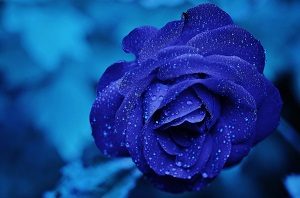
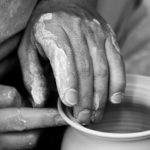 Previous Post
Previous Post Next Post
Next Post
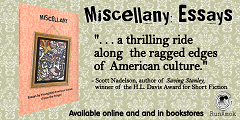
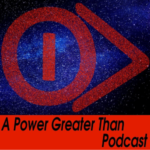

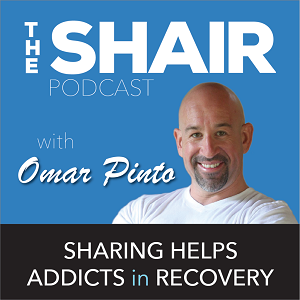
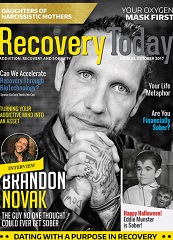
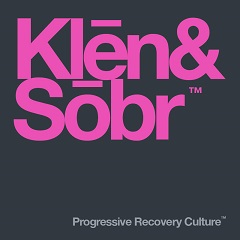
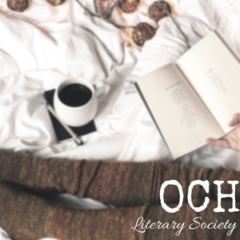
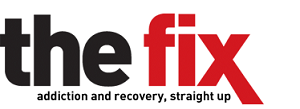

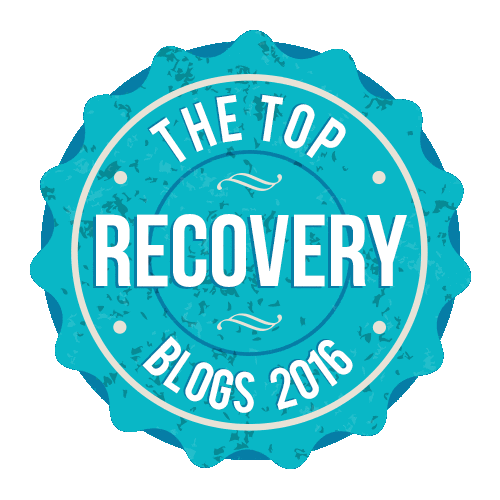


This is so relevant and poignant for me as I explore avenues for a creative outlet. I’m reading “The Spirituality of Imperfection” Storytelling and the journey to wholeness by Ernest Kurtz and Kathrine Ketcham- Our stories and those of others are the divine keys to our salvation and that of many others
That book! I love that book. It really shaped my sobriety. It’s so true isn’t it? No matter how far down the path we have gone we can be of great service. Thanks man, I needed your comment this morning.
Your writing is poetry to me!
xo
Wendy
Thank you Wendy. I have a huge smile on my face right now reading your comment.
I’m with Wendy! So much here, I need to re-read. and re-read. Poetry has always irritated me. Now I know why! I may give it another go after this post. Thank you, Mark!
Thank you Liz.
Thank you Mark! I believe that Keats’ letters are some of the great (if unsystematic) poetry and philosophy of the 19th century. Whenever I teach British Lit, I teach some of his letters (the negative capability letter and the “vale of soul-making” letter in particular).
You remind of of T.S. Eliot’s great observation about poetry that, “The poet is occupied with frontiers of consciousness beyond which words fail though meaning still exists.”
Dan, I’m so glad you commented. It was your comment on the last post that inspired this one.
I need to expand my Frankenstein unit to include more of these ideas. I just give the guys a general view of how it is a romantic novel even though history has used it as a gothic tale.
I have not invested much time in Eliot. I don’t know if I will after reading Zadie Smith’s “Fail Better” which built a monument on the ashes of Eliot’s critical theory. It’s similar to how I read Achebe’s criticism of “Heart of Darkness” and became so dazzled that I couldn’t read the actual text.
There is one Eliot quote, a sound byte, that I treasure, but I can’t remember it at the moment. Maybe you know it. It concerns how poetry works. It makes sense beyond our understanding. Something like that. It really resonated with me when I read it.
Appreciate, as always, your insight.
Mark
And the more I read the Eliot quote you provided, I think that may be the quote I love so much: “where words fail but meaning still exists.”
I love the pictures of the new house. Leaving behind your book room in your old house…..ugh. I can barely stand the thought, but you so bravely are taking one for the team! Sharing our stories is our greatest source of power….so true. It leads to our freedom. Unlocks the chains that bind us. Happy to read you today my friend.
Wait…..I love the pictures of the new house that I see on FB. Just to clarify. Lol
Haha. I caught your drift. I could say the same about your beautiful grandchild and hope I don’t sound too creepy.
Thanks for stopping by Annette. Hope you’re doing well! And thank you for your kind support.
Sometimes I’m jealous of people like you. I have a distaste for poetry that, well, let’s just say it’s visceral. I don’t know why, either. Either way, I’m glad for you.
Thanks Jim. I’m jealous of people like you at times too. I catch myself often looking at my life, what I’ve devoted myself to, and ask that burning question, Why?
Now on that question I’m definitely lucky. I NEVER ask why. The answer is simple; because I love to have fun!
I love this post (again!) Mark. I am about to publish my firsts book of poetry. I’d never written poems since I was a kid and had neve read it. I was surprised when they started pouring out of me and I love it now, both reading and writing it. I love how it helps you to capture abstract feelings, emotions, sensations and thoughts, and how it enables you to play with language Andrew new discoveries. And all the while I never know whether what I am writing is any good or a load of rubbish haha. But the point for me is that it is a wonderful form of expression for me, and I can’t imagine how I lived the bulk of my life without it.
dude, no way! I knew you were a poet, but I didn’t know you were a book-length type of poet.
I love the way you describe language and what it can do.
I’d really like a copy when you publish it!
Wow, autocorrect on this phone really is determined to make me look illiterate. Errr, thanks apple!!
auto correct is awful. I’m finding the new gmail auto-email-response. It encourages us to reply hastily and without thought.
“We are glued to our certainties. The media we read reflect that same algorithm. Poetry is a gift because it dismantles our assurances; it allows us to view the simple things in different ways.” Love this and so so so true!
Thank you Alicia!
We are glued to our certainties.
Just wow.
Thank you for saying that. The prayer of wow (or gratitude for it) is my favorite!
I’ve never met either a stupid alcoholic / addict or one that didn’t feel deeply. I partly feel that for us we’re wired up differeently from a lot of the population and we have to feel more at some viseral level but frankly that is so painful for so many of us we drink / use to numb those feelings as it is so hard to bare them.
I get your two-sided sense of an alcoholic Graham. I have other theories on it, loosely developed. Mainly mental health sufferers or alcoholics or whatever are not misfits but people unwilling to accept the unnatural demands of the modern world.
I totally agree…no coincidence that alcohol is called ‘spirits’
In addition to the self-medication component of addiction, addicts are also desperate to experience a different consciousness. To escape the mundane reality of the 5 senses and our ego-based world. So the thirst for spirituality is there from the beginnning.
This is so true! The altered or different consciousness. I felt that need very intensely in my days of drinking. So needed was a change, that I’d gladly accept whatever change of mind would come my way. Didn’t have to be for the better necessarily, just different. That explains why things (like smoking weed for example) stopped working for me but I kept using them.
Poetry is indeed the language of both suffering and healing 🙂 !
I shed a tear after reading the very end of your post. I’m struggling to stop drinking, again. It’s not over and done with; but I can change. Thank you. LL
Dana, I’m glad this post moved you. No. It is not over. You are here. You are loved. Your story is not over!
Love this: “[Poetry] is when man is capable of being in uncertainties. Mysteries, doubts, without any irritable reaching after fact and reason.”
You could substitute the word poetry for enlightenment.